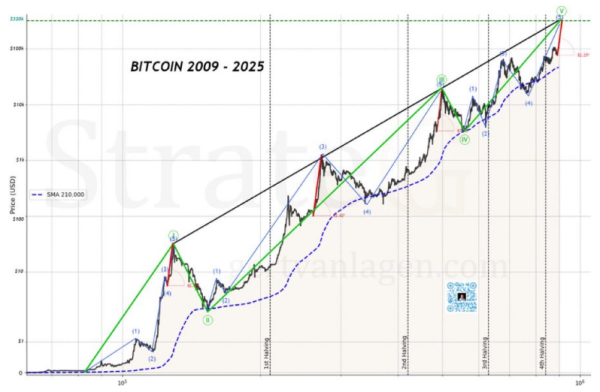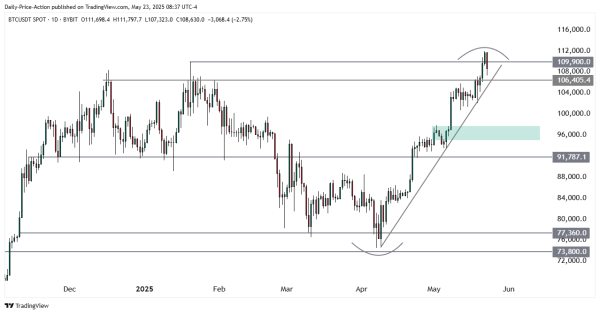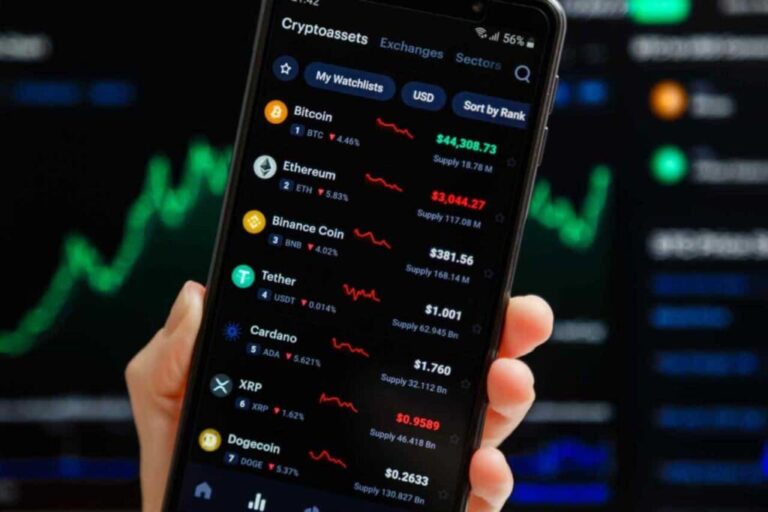- Institutional investors are steadily increasing their Bitcoin holdings as retail investors sell off prematurely, driven by impatience and financial pressure.
- Bitcoin’s appeal grows amid global economic uncertainty, with institutions adopting it as a hedge against inflation and financial instability.
The Modern Investor has discussed a significant issue in the crypto market: institutional players are silently accumulating large volumes while retail investors seem to be liquidating their Bitcoin holdings. This trend has raised issues regarding long-term plans and the consequences for regular investors who might regret their choices in retrospect.
Institutional Bitcoin Accumulation vs. Retail Investor Impatience
Notable advancements in Bitcoin purchases have been underlined throughout the last few weeks. Leading the pace and steadily raising their Bitcoin holdings are companies like MetaPlanet and MicroStrategy.
Often referred to as the “MicroStrategy of Asia,” MetaPlanet has made news with its largest Bitcoin purchase to date—619 BTC for $60 million. With their entire holdings of 1,762 BTC, valued at around $168 million, this buy brings them to.
Likewise, Riot Platforms has been building up its Bitcoin reserves by purchasing extra coins after a senior notes issuance. These institutional actions highlight a clear discrepancy with the behavior of many regular investors, who are preferring to sell their assets early on since they are growingly annoyed with market stagnation.
Often motivated by financial constraints and FOMO (fear of missing out), this impatience drives a loop whereby ordinary investors sell low and try to purchase again later, usually at a loss.
Bitcoin’s Role as a Hedge Amid Global Economic Uncertainty
The expanding acceptance of Bitcoin among institutions is much influenced by the larger economic landscape. Bitcoin is considered a hedge against traditional financial risks as global markets exhibit symptoms of volatility, inflation worries, and growing debt levels call for change.
Along with significant national and student debt, the United States alone carries credit card debt totaling over $1 trillion. Given this financial uncertainty, Bitcoin’s limited quantity becomes ever more appealing.
Countries undergoing devaluation of their currencies—like Turkey and Argentina—have seen rising interest in Bitcoin as a wealth preservation tool. Some countries still hesitate to completely accept cryptocurrencies in spite of this, though.
India, for example, has great potential for adoption given its 1.5 billion population but still suffers regulatory uncertainties, therefore restricting its market penetration.
Retail Investors’ Choices Risk Undermining Core Financial Values
As institutional players unite their positions, the impatience of retail investors could cause lost possibilities. The Modern Investor pointed out the hypocrisy of retail traders supporting institutional buys when their actions limit the availability of Bitcoin for regular users.
This “worship” of institutional players sometimes takes focus away from the essential Bitcoin values—financial freedom and decentralization.
The video also highlighted a significant behavioral tendency among retail investors: too much expenditure without savings. Many give luxury purchases top priority above long-term savings, therefore expanding the wealth difference.
Retail investors run the danger of being left behind in a market progressively controlled by big companies as institutions keep accumulating Bitcoin.
The research of The Modern Investor clarifies a worrying trend in the Bitcoin market. Retail investors run the danger of selling out too quickly and missing long-term rewards while companies like MetaPlanet and Riot Platforms use cheap pricing to maintain their positions.
The dynamics of the market will probably favor those who show foresight and patience given the fixed quantity of Bitcoin and rising acceptance.


